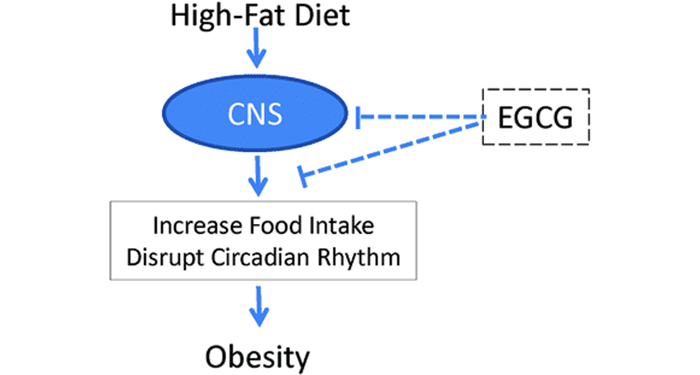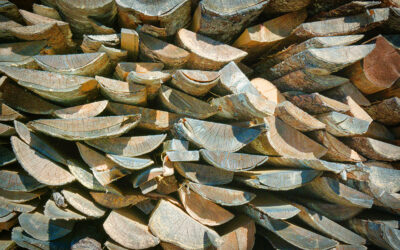Should you swap your coke for green tea next time you go out for pizza? The answer appears to be yes. The ‘slimming’ effect of green tea is one of the many plus points this healthy beverage boasts. Over the years its beneficial effects on fat cell metabolism and lipid oxidation have been investigated in great detail. It seems, however, that the active compound (-)-epigallocatechin-3-gallate (EGCG) in green tea might also offset bad eating behavior associated with high-fat diets (HFD).

One aspect of the detrimental impacts of HFD in obesity development is altered feeding behavior including both elevated food intake and disrupted circadian rhythm via the central nerve system. After ingesting too many high-fat foods on a regular basis, the ‘brain reward system’ kicks in and a vicious cycle of repetitive eating ensues, irrespective of the actual energy demands. In humans, this might mean additional trips to the fridge during the night, whereas in mice HFD causes excessive day-time eating. As shown in a recent study by Hongyu Li et al, this overeating behavior appears to be broken by simultaneous consumption of EGCG, which is the active ingredient in green tea.
Now, a research group from Singapore has investigated the feeding behavior of mice with normal diet and high-fat diets and supplemented both with EGCG. While there was no effect in the control diet mice, increased daytime feeding was selectively corrected by EGCG treatment in HFD mice. This included food intake, feeding frequency, and meal size. The researchers then looked at the expression of key appetite-regulating genes and key circadian clock genes in the hypothalamus and found that EGCG had a profound effect on the expression pattern, indicating its central effect on CNS-regulated feeding behavior and energy homeostasis.

















